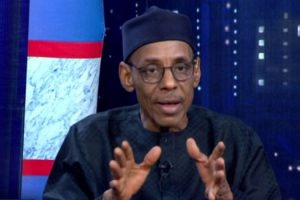
The National Space Research and Development Agency (NASRDA) is set to commence its space regulation and licensing mandate following the approval of a ₦20 billion take-off fund by President Bola Ahmed Tinubu.
NASRDA’s Director-General, Dr. Matthew Adepoju, announced the development in an interview with the News Agency of Nigeria (NAN) in Abuja, emphasizing that the agency’s regulatory responsibilities, outlined in the NASRDA Act of 2010, had remained unimplemented since its establishment in 1999.
The announcement comes ahead of the NASRDA stakeholders’ workshop on space regulation, scheduled for April 8.
Presidential Approval for Space Regulation
Dr. Adepoju revealed that upon assuming office, he submitted a memo to President Tinubu advocating for the enforcement of NASRDA’s regulatory functions in line with Sections 6 and 9 of the agency’s founding laws. In response, the president approved the ₦20 billion take-off fund to enable NASRDA to oversee space regulation and spectrum management in Nigeria.
“When I raised that memo stating that our space can no longer be unregulated, Mr. President graciously approved the take-off fund of ₦20 billion a few months ago,” Adepoju stated. “This is to enable us to commence space regulation and spectrum management in Nigeria. Although there are security concerns associated with the sector, if we do not take control, it will continue to be misused.”
Despite the approval, Adepoju clarified that the agency has yet to access the funds, as disbursement is dependent on government financial procedures and availability. However, NASRDA has already established a platform to commence its regulatory and licensing functions.
Key Areas of Regulation
Adepoju outlined the three main segments of the space industry that require regulatory oversight:
- Upstream: Involves deep space activities, including satellite launches and exploration missions.
- Midstream: Covers space objects such as satellites in orbit.
- Downstream: Focuses on ground stations and the use of space-based products and services by businesses and individuals.
He stressed the importance of regulations to ensure Nigerians are not short-changed in these areas. He also noted that NASRDA has been authorized to manage Nigeria’s spectrum since 2010 and will now enforce guidelines to prevent unauthorized usage.
The newly introduced licensing platform is now open to both public and private operators, particularly satellite image providers, GIS operators, and companies involved in satellite-based telecommunications and broadcasting services.
Enhancing National Security and Economic Growth
Adepoju highlighted the necessity of strict oversight, particularly to prevent non-state actors from exploiting geographical data for illegal activities. He emphasized that the new regulatory measures would enhance national security, promote economic diversification, and support the development of local content in Nigeria’s space sector.
Additionally, the initiative is expected to generate revenue by providing regulated space-based services to industries such as oil and gas, shipping, and telecommunications, which rely heavily on satellite technology.
With NASRDA set to enforce its regulatory functions, Nigeria is poised to strengthen its position in the global space industry while ensuring that space technology is used effectively and securely within the country.





